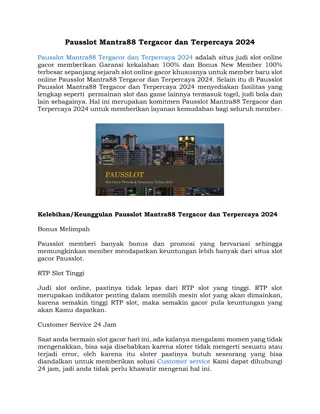
Issues in Cohort Studies: Design, Conduct, and Analysis
Explore the key issues in cohort studies including selection bias, loss to follow-up, confounding variables, measurement bias, ethical considerations, generalizability, and resource-intensive nature. Learn how these factors can impact the validity and reliability of study findings, highlighting the importance of careful planning and consideration throughout the research process.
Uploaded on | 0 Views
Download Presentation

Please find below an Image/Link to download the presentation.
The content on the website is provided AS IS for your information and personal use only. It may not be sold, licensed, or shared on other websites without obtaining consent from the author. If you encounter any issues during the download, it is possible that the publisher has removed the file from their server.
You are allowed to download the files provided on this website for personal or commercial use, subject to the condition that they are used lawfully. All files are the property of their respective owners.
The content on the website is provided AS IS for your information and personal use only. It may not be sold, licensed, or shared on other websites without obtaining consent from the author.
E N D
Presentation Transcript
Prepared by Alaa Mohammad MSc optometry Research Methodology Lectures 3 & 4 Issues in the design & conduct of cohort studies : There are several issues that researchers need to consider in the design and conduct of these studies . 1. Selection bias: Cohort studies can be prone to selection bias if the participants chosen for the study are not representative of the target population. This can lead to inaccurate results and conclusions. 2. Loss to follow-up: Cohort studies require long-term follow-up of participants, which can lead to high rates of loss to follow-up. This can introduce bias if the participants who drop out of the study are different from those who remain, leading to inaccurate results.
3. Confounding variables: Cohort studies can be affected by confounding variables, which are factors that are associated with both the exposure and the outcome of interest. Failure to account for confounding variables can lead to inaccurate results and conclusions. 4. Measurement bias: Cohort studies rely on accurate measurement of exposure and outcome variables. Measurement bias can occur if the methods used to measure these variables are not reliable or valid, leading to inaccurate results. 5. Ethical considerations: Cohort studies involve following participants over time and collecting sensitive information about their health and lifestyle. Researchers must ensure that participants' privacy and confidentiality are protected, and that informed consent is obtained. 6. Generalizability: Cohort studies may not always be generalizable to the broader population, as participants are often selected based on specific criteria. Researchers must carefully consider the external validity of their findings and the extent to which they can be applied to other populations. 7. Resource-intensive: Cohort studies can be time-consuming and expensive to conduct, as they require long-term follow-up of participants and collection of data over time. Researchers must carefully plan and budget for the resources needed to conduct a cohort study effectively.
Issues in analysis : 1. Selection bias: Cohort studies may be prone to selection bias if the participants chosen for the study are not representative of the target population. This can lead to inaccurate results and conclusions. 2. Loss to follow-up: Cohort studies require long-term follow-up of participants, which can result in loss to follow-up. This can lead to missing data and bias in the results if the participants who drop out of the study are systematically different from those who remain. 3. Confounding variables: Cohort studies may be affected by confounding variables, which are factors that are associated with both the exposure and the outcome of interest. Failure to account for confounding variables can lead to biased results. 4. Measurement bias: Cohort studies rely on accurate measurement of exposure and outcome variables. Measurement bias can occur if there are errors in the measurement of these variables, leading to inaccurate results.
5. Generalizability: Cohort studies may have limited generalizability if the study population is not representative of the broader population. This can limit the applicability of the study findings to other populations. 6. Ethical considerations: Cohort studies involve the collection of data from human participants, which raises ethical considerations. Researchers must ensure that participants' rights and confidentiality are protected throughout the study. Issues in the interpretation : 1. Confounding variables: Cohort studies may be susceptible to confounding variables, which can distort the relationship between the exposure and the outcome. Confounding variables are factors that are associated with both the exposure and the outcome, making it difficult to determine if the exposure is truly causing the outcome. 2. Selection bias: Cohort studies may be prone to selection bias, as participants may self-select into the study based on certain characteristics. This can lead to a non-representative sample and potentially biased results.
3. Loss to follow-up: Cohort studies often require long-term follow-up of participants, which can lead to loss to follow-up. If participants drop out of the study for reasons related to the outcome being studied, this can bias the results. 4. Measurement bias: Errors in the measurement of exposure or outcome variables can introduce bias into cohort studies. For example, self-reported data may be subject to recall bias, where participants may inaccurately report their exposure or outcome. 5. Generalizability: Cohort studies may have limited generalizability, as they often involve specific populations or settings. This can make it difficult to apply the findings of a cohort study to other populations or settings. 6. Confounding by indication: In cohort studies of treatments or interventions, confounding by indication may occur if the decision to prescribe a treatment is based on the severity of the condition being treated. This can lead to biased results if the severity of the condition also influences the outcome. 7. Reverse causation: In cohort studies, reverse causation may occur if the outcome influences the exposure, rather than the other way around. This can lead to incorrect conclusions about the relationship between the exposure and outcome.
Limitations : 1. Selection bias: Cohort studies may be subject to selection bias if the participants included in the study are not representative of the target population. This can lead to results that are not generalizable to the broader population. 2. Loss to follow-up: Cohort studies require long-term follow-up of participants, which can be challenging to maintain over time. High rates of loss to follow-up can introduce bias and affect the validity of the study results. 3. Confounding variables: Cohort studies may be subject to confounding variables, which are factors that are associated with both the exposure and the outcome of interest. Failure to account for these variables can lead to biased results. 4. Measurement bias: Cohort studies rely on accurate and reliable measurement of both the exposure and outcome variables. Measurement bias can occur if the methods used to assess these variables are not standardized or if there is misclassification of the exposure or outcome.
5. Ethical concerns: Cohort studies may raise ethical concerns, particularly if participants are exposed to potential harm as a result of their participation in the study. Researchers must ensure that the benefits of the study outweigh any potential risks to participants. 6. Resource-intensive: Cohort studies can be resource-intensive and time-consuming to conduct, particularly if they require long-term follow-up of participants. This can limit the feasibility of conducting large-scale cohort studies. 7. Limited generalizability: Cohort studies may have limited generalizability if the study population is not representative of the broader population. This can limit the external validity of the study results.






















